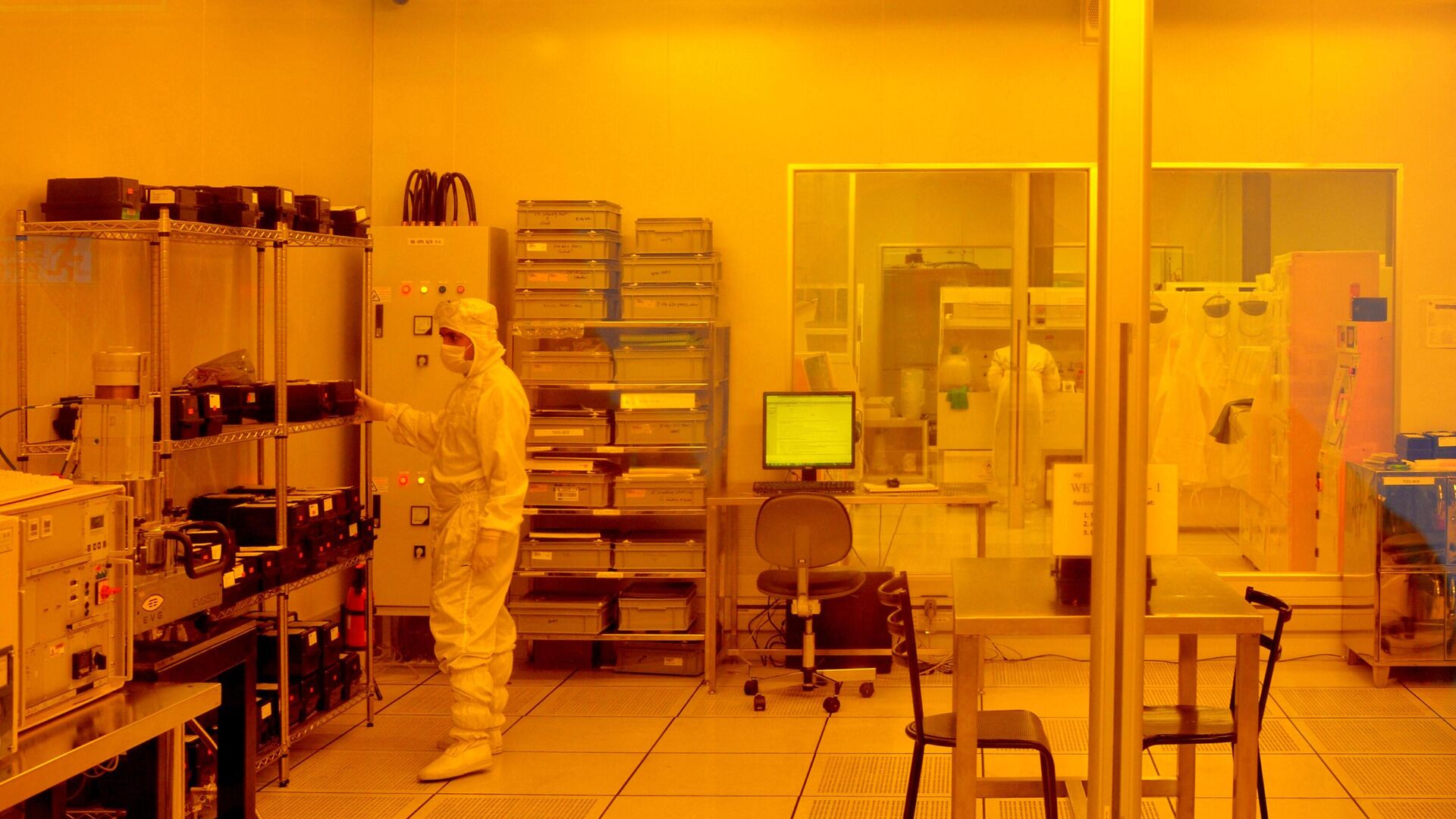https://sputnikglobe.com/20220922/india-expects-25-bln-investment-in-semiconductor-manufacturing-as-govt-unveils-new-incentives-1101077676.html
India Expects $25 Bln Investment in Semiconductor Manufacturing as Gov't Unveils New Incentives
India Expects $25 Bln Investment in Semiconductor Manufacturing as Gov't Unveils New Incentives
Sputnik International
While the market for semiconductors in India is estimated to grow to $110 billion by 2030, the country still doesn’t have a chip manufacturing unit and largely... 22.09.2022, Sputnik International
2022-09-22T11:02+0000
2022-09-22T11:02+0000
2022-09-22T11:02+0000
india
chips
semi-conductors
narendra modi
foxconn
https://cdn1.img.sputnikglobe.com/img/07e6/09/16/1101082220_0:281:3077:2012_1920x0_80_0_0_9afee90138c048ee5bf8023bb80273dc.jpg
India is expected to solicit at least $25 billion in investment in the domestic semiconductor manufacturing industry as a result of new incentives meant to boost local production, Minister of State for Electronics and Technology Rajeev Chandrasekhar said on Wednesday.The comments came hours after the federal Cabinet, chaired by Prime Minister Narendra Modi, announced a “fiscal support” of 50 percent of project costs for all investors interested in setting up chip factories in India, including semiconductor and display fabs.A semiconductor fab is a facility where silicon wafers are converted into integrated circuits (ICs), which have applications in the defense, IT, and automobile industries. Display fabs, on the other hand, manufacture LCDs and other display units.A statement by the government said that the authorities would also provide 50 percent of “capital expenditure” for manufacturers setting up compound semiconductors, silicon photonics, and sensor fab facilities in the country.Under the Production-Linked Incentive (PLI) scheme revealed by Prime Minister Narendra Modi last December, the Indian government announced a $10 billion subsidy to set-up 20 chip plants in the country. However, the level of government support under the scheme varied between 30 and 50 percent.“These incentives will attract investment in the entire semiconductor ecosystem, including in the mass semiconductor market,” Chandrasekhar said, adding that he was in talks with many foreign companies who have expressed interest in establishing semiconductor units in the country.India has redoubled efforts to invite foreign chip manufacturers to set up plants in the country against the backdrop of concerns that the US and other Western countries have been restricting exports of semiconductor technology to other countries amid growing competition with China.Last week, Vedanta Limited entered into a $19.5 billion agreement with Taiwan’s Foxconn to set up a chip factory in India's western state of Gujarat. In May, ISMC, a joint venture between UAE-based Next Orbit Ventures and Israel’s Tower Semiconductor, also announced a $3 billion investment to establish a chip unit in Karnataka.In July, Singapore-headquartered IGSS Ventures also announced a $3.2 billion investment for a fab unit in Tamil Nadu.
Sputnik International
feedback@sputniknews.com
+74956456601
MIA „Rosiya Segodnya“
2022
News
en_EN
Sputnik International
feedback@sputniknews.com
+74956456601
MIA „Rosiya Segodnya“
Sputnik International
feedback@sputniknews.com
+74956456601
MIA „Rosiya Segodnya“
india, chips, semi-conductors, narendra modi, foxconn
india, chips, semi-conductors, narendra modi, foxconn
India Expects $25 Bln Investment in Semiconductor Manufacturing as Gov't Unveils New Incentives
While the market for semiconductors in India is estimated to grow to $110 billion by 2030, the country still doesn’t have a chip manufacturing unit and largely relies on imports from South Korea and Taiwan to meet its domestic needs.
India is expected to solicit at least $25 billion in investment in the domestic semiconductor manufacturing industry as a result of new incentives meant to boost local production, Minister of State for Electronics and Technology Rajeev Chandrasekhar said on Wednesday.
The comments came hours after the federal Cabinet, chaired by Prime Minister Narendra Modi,
announced a “fiscal support” of 50 percent of project costs for all investors interested in setting up chip factories in India, including semiconductor and display fabs.
A semiconductor fab is a facility where silicon wafers are converted into integrated circuits (ICs), which have applications in the defense, IT, and automobile industries. Display fabs, on the other hand, manufacture LCDs and other display units.
A statement by the government said that the authorities would also provide 50 percent of “capital expenditure” for manufacturers setting up compound semiconductors, silicon photonics, and sensor fab facilities in the country.
Under the Production-Linked Incentive (PLI) scheme revealed by Prime Minister Narendra Modi last December, the Indian government announced a $10 billion subsidy to set-up 20 chip plants in the country. However, the level of government support under the scheme varied between 30 and 50 percent.
Explaining the significance of the new incentives, Chandrasekhar said government incentives for setting up silicon fab units are now on par with subsidies for establishing display fab units.
“These incentives will attract investment in the entire semiconductor ecosystem, including in the mass semiconductor market,” Chandrasekhar said, adding that he was in talks with many foreign companies who have expressed interest in establishing semiconductor units in the country.
India has redoubled efforts to invite foreign chip manufacturers to set up plants in the country against the backdrop of concerns that the US and other Western countries have been
restricting exports of semiconductor technology to other countries amid growing competition with China.
Last week, Vedanta Limited entered into a $19.5 billion agreement with Taiwan’s Foxconn to
set up a chip factory in India's western state of Gujarat.
In May, ISMC, a joint venture between UAE-based Next Orbit Ventures and Israel’s Tower Semiconductor, also announced a $3 billion investment to establish a chip unit in Karnataka.
In July, Singapore-headquartered IGSS Ventures also announced a $3.2 billion investment for a fab unit in Tamil Nadu.



